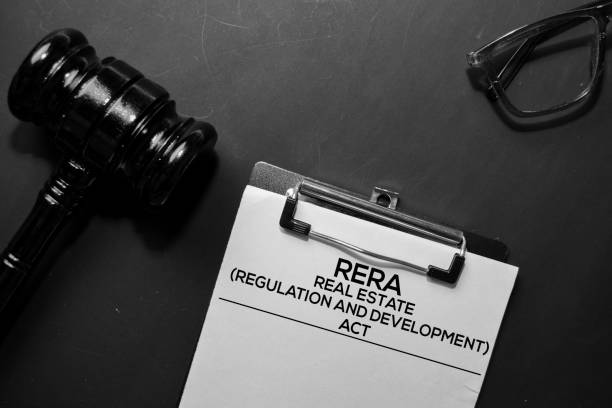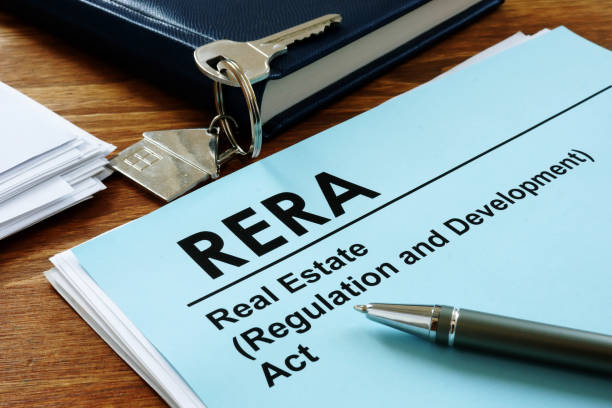By
|
Getting your Trinity Audio player ready...
|
The Government of India passed the Real Estate Regulation Authority (RERA) Act in March 2016 to ensure efficient and transparent business transactions in the real estate sector. The RERA act protects the interests of the builders, homebuyers, real estate brokers, and stakeholders of the real estate industry. The several reforms implemented by RERA have given the Indian real estate industry its first regulator. Mandatory for each state and union territory, understanding the rules and guidelines of RERA will help you sail through the otherwise complicated real estate business practices.
Understanding the importance of Real Estate Regulation Authority (RERA)

Apart from regulating and promoting the real estate sector, RERA secures the sale of plot, building or apartment, in addition to the sale of any other real estate project through much transparent and efficient business transactions. Furthermore, RERA works as an adjudicating mechanism for speedy dispute redressal and helps to establish the Appellate Tribunal— necessary to hear appeals from the decisions, directions or orders of the Real Estate Regulatory Authority. In short, RERA works at large in protecting the interest of consumers in the real estate sector.
RERA further also ensures that there are fair and equitable transactions between the buyer and seller of properties in the primary market, thus making the buying process much simpler. In a nutshell, Real Estate Regulation Authority represents transparency in the real estate business and eradicates the existing discrepancies and problems within the real estate sector.
Projects that come under RERA

After all states and union territories have complied with RERA, all real estate projects for example say, 3bhk flat in New Alipore come under its purview. However, the following conditions determine when a project falls under RERA—
- Projects that do not have a completion certificate, but were completed before the implementation of the RERA Act come under RERA.
- Projects that are under construction for renovation/repair/re-development, and aren’t re-allotting, marketing, advertising, selling or allocating any apartments, plot or building, are not complied by the RERA Act.
- However, projects that are under construction, need to maintain a report of every phase of construction as a standalone project through a fresh RERA registration.
Key benefits offered by Real Estate Regulation Authority (RERA)

The Real Estate Regulation Authority has several benefits for the buyer, the developer, and for the industry in general. Since RERA rules apply to both residential and commercial properties, the RERA act tends to protect the interests of the buyers and developers; consumers and sellers alike. Let’s take a closer look at what they are—
Real Estate Regulation Authority (RERA) Benefits for the homebuyers
- Under RERA, builders are obligated to disclose every detail of the project undertaken on RERA’s official website. In addition, they also have to regularly update the information on the website. This further provides buyers with transparency regarding project timelines.
- Buyers pay for the property based on the carpet area or the area enclosed by walls under RERA rules. Builders therefore cannot charge homebuyers for the super built-up area that includes balconies, lifts, stairs, and lobbies.
- Builders need to put 70% of the homebuyer’s money into a separate bank account, which is used only for construction purposes. Buyers can therefore ascertain that their money is in safe hands and there is also transparency on its utilization.
- Under RERA, builders cannot take more than 10% of the cost of the project from the buyer as advance or application fees.
- RERA keeps a check on the timely completion of projects. In case of project delays, developers have to pay homebuyers interest of 2% over SBI’s MCLR for the period of delay.
- After homebuyers get a handover, they can report construction defects for up to five years and can ask developers to rectify them. Under RERA, developers have to resolve the registered disputes within 120 days.
- Alterations or additions to the building plan without informing two-thirds of the owners about such a change cannot be made by the builder or developer unless a majority of homebuyers consent to it.
- The Act prohibits developers from taking more than 10% as advance from homebuyers.
- If at the time of possession, homebuyers discover a discrepancy in the title deed, they are entitled to compensation from the developer.
Real Estate Regulation Authority (RERA) Benefits for the developer
- RERA has brought up consolidation of the sector due to the mandatory state registration.
- It has enhanced the confidence of real estate developers to invest in projects, bringing higher investment.
- Developers have profited from the organized funding within the sector.
- Corporate branding has become possible through RERA and developers have certainly benefited from it.
- There is a minimum scope of litigation through RERA’s model code, which aims to create more equal and fair transactions between the seller and the buyer.
- There will be a single model sale agreement between all builders and homebuyers, ensuring greater uniformity.
Real Estate Regulation Authority (RERA) Benefits for the industry
- RERA ensures efficient governance and transparency in the real estate business deals.
- RERA’s mandatory registration for builders and developers before the start of their project has considerably reduced the number of project delays and acts of misspelling, in addition to robust project delivery and project efficiency.
- The RERA Act has brought about more accountability, uniformity, quality and standardization within the real estate industry of India.
- The RERA Act has helped to attract higher investments and PE funding into the real estate sector.
- Since its inception, RERA has helped to maintain a regulated environment.
- Every state’s RERA is subdivided into several smaller regulatory bodies that are responsible for the development of the real estate business in that particular state or union territory; this ensures greater transparency and eases the business transactions in the industry.
In closing
To ensure that your investment is in safe hands, a homebuyer should choose a RERA-registered project. The Real Estate Regulation Authority protects the interest of homebuyers and investors and makes the real estate market more organized and transparent. Almost 70 percent of the total real estate projects in the country are covered under RERA jurisdiction. PS Group offers several residential projects that are RERA compliant. To know more about 3 bhk flat in em bypass kolkata, ready to move flats in joka, and buy apartment in Kolkata, visit our website and get in touch with our competent sales team!
Property agents and builders can apply for RERA registration on the RERA portals of their respective states. They can register under an individual’s name or entity’s name. It is necessary to submit all the prerequisite documents for registration.
Under RERA, the carpet area is the net usable floor area of an apartment and includes the area covered by the internal partition walls of the apartment. The RERA carpet area excludes the area covered by the external walls, along with areas under services shafts. This includes the balcony or verandah area, and open terrace area.
Based on the offence, the developer or promoter is charged a penalty. Following is the list of penalties in case the developer is found guilty—
Developers pay 10% of the project’s estimated cost if they do not register under RERA. Moreover, they are charged 5% of the project’s estimated cost if they give out false information related to the project.
Violation of laws can lead to imprisonment for up to 3 years or can cost up to 10% of the project’s estimated cost.
Agents are charged Rs.10,000 per day or up to 5% of the project’s cost, in case they are found conducting construction and sales on their project without a RERA registration.
In case of severe non-compliance with RERA, developers also need to pay a daily penalty of up to 5% of the project’s probable value.
The penalty is imprisonment for up to 1 year, or 10% of the project’s probable cost, or both, in case of non-compliance with the Appellate Tribunal.
Buyers too have to pay a daily penalty of up to 5% of the approximate cost of the project in case of non-compliance with RERA. On the other hand, non-compliance with the Appellate Tribunal has penalty of imprisonment for up to 1 year, or 10% of the project’s probable cost, or both.
Following indicators ensure that a property is RERA compliant:
If the area of the property is more than 500 square meters, builders require to register the property under RERA Act before its launch or before advertising it.
Builders must provide a proof that 70% of the total payment is deposited into a discrete escrow account. This ensures transparency that it is not used for some other investment.
Builders need to get all the necessary consents before advertising a new project. Discounts for early bird bookings and pre-launch offers are not applicable for RERA compliant projects.
It is mandatory for every state and Union Territory to have its own regulator under RERA. Under RERA, real estate developers are not allowed to market their ongoing or upcoming projects, until they have registered either with the permanent or interim regulator in states. Since the implementation of the RERA act, more than 22 Indian states and 6 union territories follow it to solve complaints and disputes from the state’s real estate business.
The state assembly passed the West Bengal Housing Industry Regulation Bill 2017 on August 16, 2017. As notified by the West Bengal government, all housing projects above 500 sq metres or eight apartments have to be registered with the state regulator— the Housing Industry Regulatory Authority (HIRA).
Leave a comment







